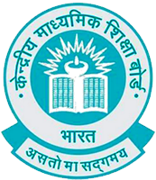About | Central Board of Secondary Education (CBSE) , All INDIA Check here latest notification
Understanding the Central Board of Secondary Education (CBSE)
The Central Board of Secondary Education (CBSE) is one of the most prominent and widely recognized educational boards in India. Established to ensure a cohesive, high-quality education system across the country, CBSE plays a pivotal role in shaping the academic framework and future of millions of students. In this blog, we'll explore the history, structure, curriculum, and impact of CBSE on the Indian educational landscape.
History and Evolution
CBSE's roots trace back to 1929, when it was initially set up as the Board of High School and Intermediate Education, Rajputana. It later evolved into CBSE in 1952 with the aim of serving a unified educational system in India. Over the decades, CBSE has expanded its reach, now catering to more than 21,000 schools in India and over 200 schools in 28 foreign countries.
Structure and Governance
CBSE operates under the aegis of the Union Government of India, specifically the Ministry of Education. The board is governed by a body of members, including educational experts, government representatives, and school principals. The key administrative functions of CBSE include:
1. Curriculum Development: CBSE is responsible for designing and updating the curriculum for classes 1 to 12.
2. Examinations: Conducting the All India Secondary School Examination (AISSE) for class 10 and the All India Senior School Certificate Examination (AISSCE) for class 12.
3. Affiliation: Granting affiliation to schools across India and abroad, ensuring they adhere to the prescribed norms and standards.
4. Educational Research: Promoting educational research and innovation to enhance the quality of education.
Curriculum and Pedagogy
The CBSE curriculum is designed to provide a balanced and holistic education, emphasizing both academic excellence and the development of life skills. Key features of the CBSE curriculum include:
1. Continuous and Comprehensive Evaluation (CCE): Introduced to reduce the stress of board exams, CCE assesses students through periodic tests, assignments, projects, and practical exams throughout the academic year.
2. Skill Development: CBSE emphasizes vocational and skill-based education, offering courses in various fields such as IT, hospitality, and healthcare.
3. Inclusivity: The board ensures that the curriculum is inclusive, catering to the diverse needs of students, including those with disabilities.
Examination System
CBSE's examination system is renowned for its rigor and standardization. The board exams for classes 10 and 12 are a significant milestone in a student's academic journey. Some key aspects of the CBSE examination system include:
1. Standardized Question Papers: Designed to test a student's understanding, analytical abilities, and application of knowledge.
2. Fair Evaluation: A robust and transparent evaluation process ensures fairness and accuracy in marking.
3. Reforms: Periodic reforms are introduced to keep pace with global educational standards and to address contemporary educational needs.
Impact on Indian Education
CBSE's influence on Indian education is profound. Here are some ways in which it has made a significant impact:
1. Uniformity: CBSE provides a standardized education system, ensuring that students across India receive the same quality of education.
2. Global Recognition: CBSE qualifications are recognized globally, making it easier for students to pursue higher education abroad.
3. Innovation: The board's emphasis on research and innovation has led to the introduction of modern teaching methodologies and educational technologies.
4. Holistic Development: CBSE's focus on extracurricular activities, sports, and life skills ensures the all-round development of students.
Conclusion
The Central Board of Secondary Education (CBSE) stands as a pillar of the Indian educational system, known for its high standards and commitment to quality education. By continually evolving and adapting to the changing educational landscape, CBSE remains at the forefront of fostering academic excellence and holistic development among students. Whether in India or abroad, CBSE continues to shape the future of millions of learners, preparing them to meet the challenges of the globalized world.





